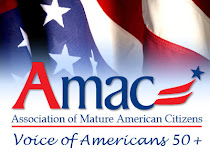The new report — titled Fishy Business — comes from New York's Office of the Attorney General (OAG), headed by AG Barbara Underwood.
Sunday, March 22, 2020
ARTICLE: "BRAZEN SEAFOOD BAIT & SWITCH PERSISTS"
"Brazen Seafood Bait and Switch Persists"
Article from the Vital Choice Wild Seafood and Organics website
Below is an excerpt from the article. To read the article in its entirety, click on the link below:
Article Excerpt:
Sadly, reports revealing a continuing seafood “con” keep cropping up.
We first wrote about the problem after Vital Choice founder and
former Alaska fisherman Randy Hartnell visited New York’s Fulton Fish
Market in 2004 with Andrew Weil, M.D.
Randy found that some wholesalers were labeling and selling farmed salmon as wild salmon — an experience he recounted in Salmon Buyer Beware: An Eye-Opening Trip to Manhattan's Fish Market.
He then contacted Marian Burros, then the lead food writer for The
New York Times, which resulted in the investigation we covered in NY Times Calls Wild Salmon a Gamble for Consumers.
Since then, investigations by, among others, the advocacy group
Oceana, have continued to find some supermarkets and restaurants selling
cheaper species as fish for which people are used to paying a higher
price — thereby boosting profit margins.
The Seafood Labeling & Fraud section of our news archive contains more than a dozen reports with Salmon Fraud Scandal being the most recent: a lengthy litany that signals the persistence and scope of the problem.
And a new report from New York's Attorney General confirms the ongoing nature of this profitable con.
New York AG finds rampant seafood fraud
The new report — titled Fishy Business — comes from New York's Office of the Attorney General (OAG), headed by AG Barbara Underwood.
The new report — titled Fishy Business — comes from New York's Office of the Attorney General (OAG), headed by AG Barbara Underwood.
The authors of the report set the stage: “Something fishy is going on
at supermarket seafood counters. Consumers think they are buying lemon
sole, red snapper, wild salmon, or any one of dozens of seafood options.
But too often, they get something else entirely. It’s a
bait-and-switch, which cheats consumers ...”.
As they said, “Seafood substitution and mislabeling is not a new
phenomenon. Academics, nongovernmental organizations, and regulators
throughout the world have identified high levels of seafood mislabeling
at the wholesale and retail levels.”
Here is the link to the rest of the article: https://www.vitalchoice.com/article/brazen-seafood-bait-and-switch-persists
Subscribe to:
Post Comments (Atom)

.png)


No comments:
Post a Comment